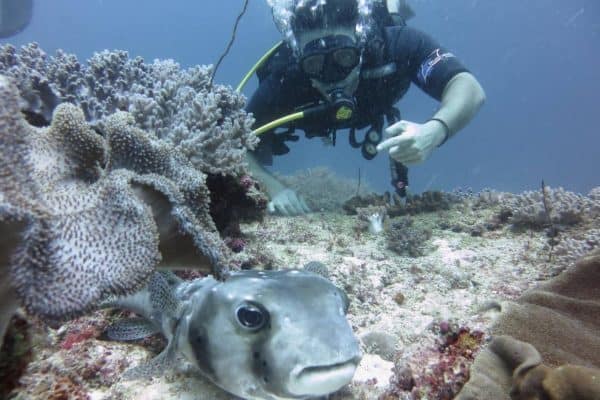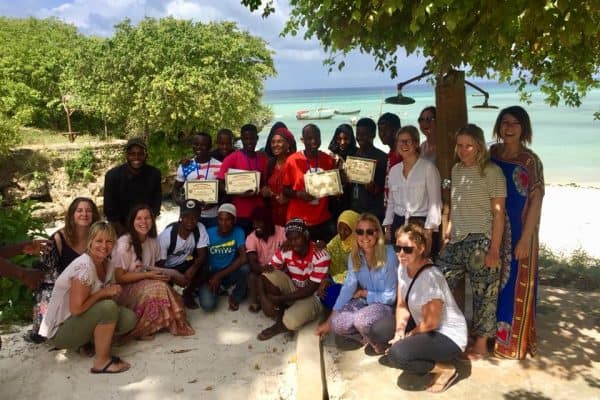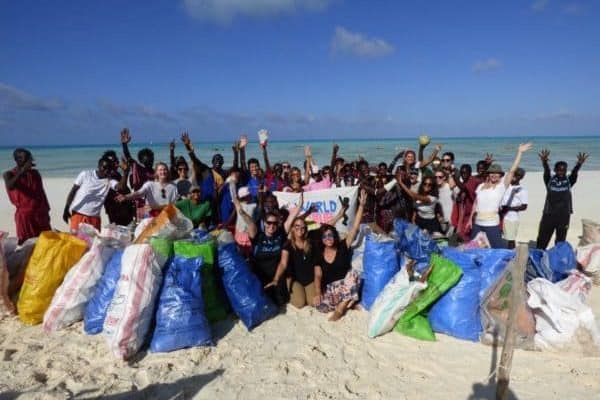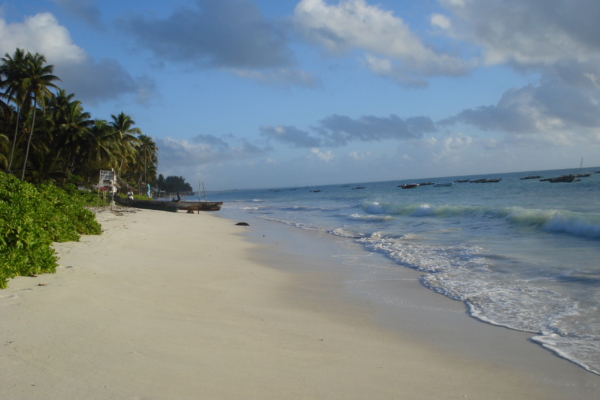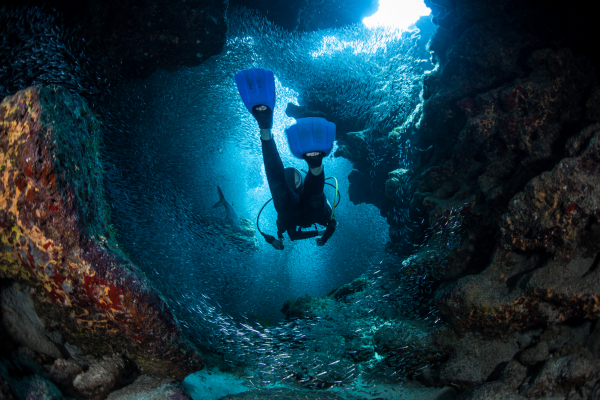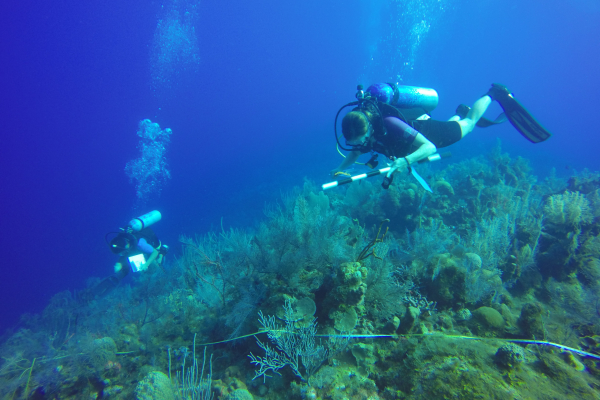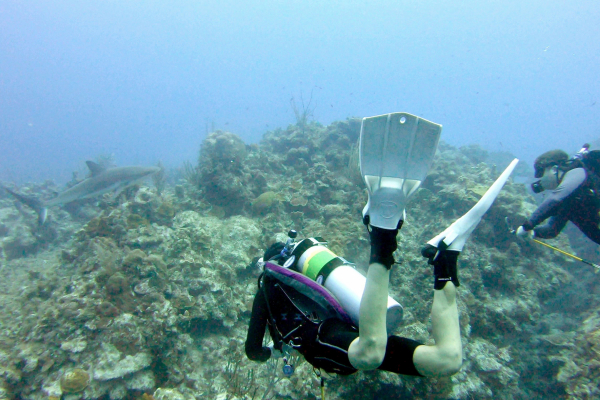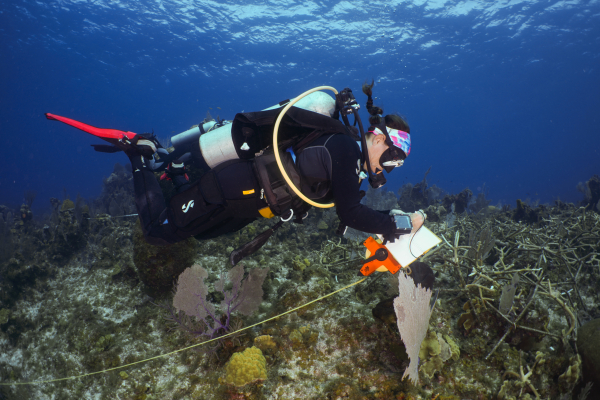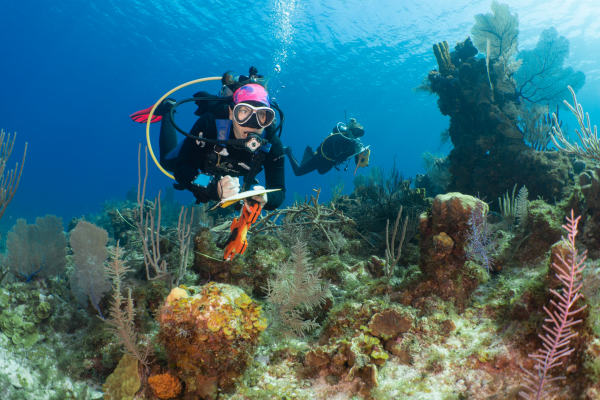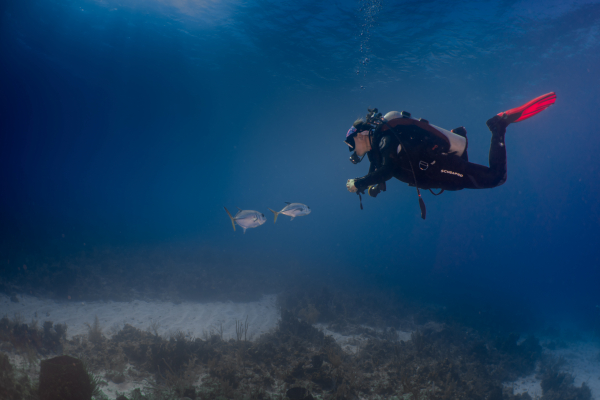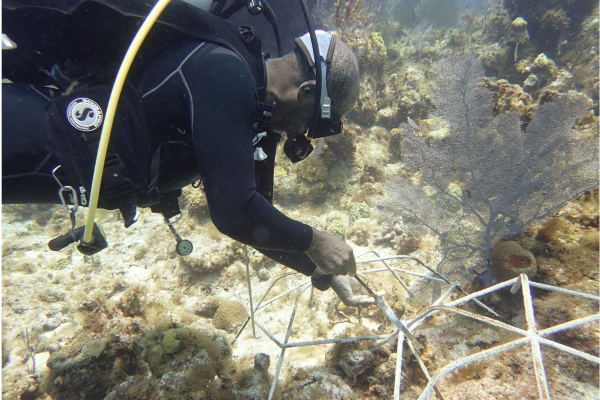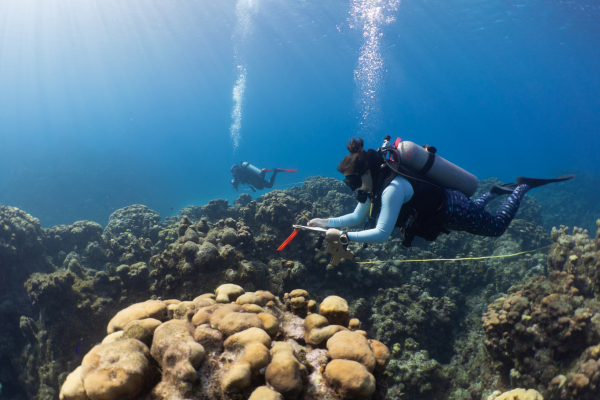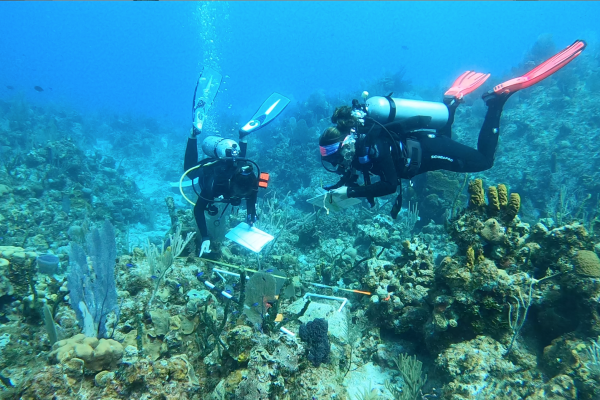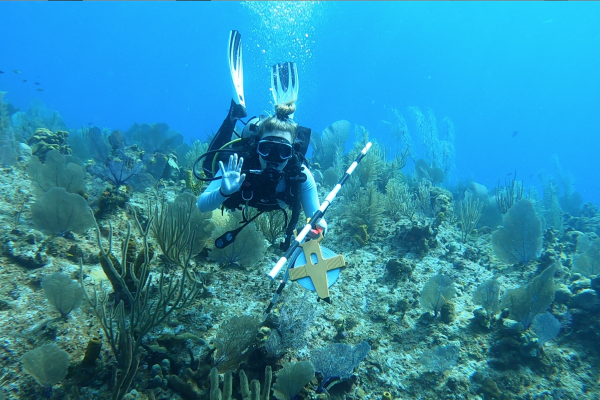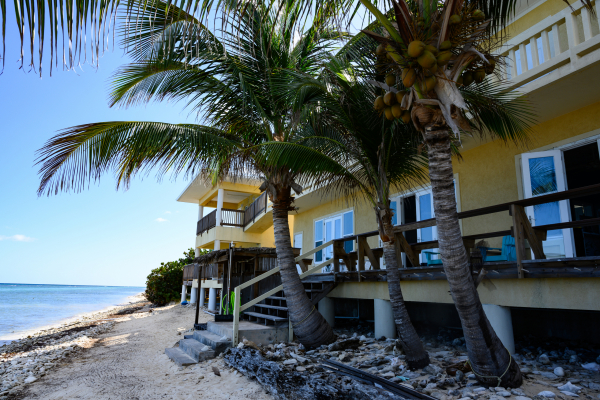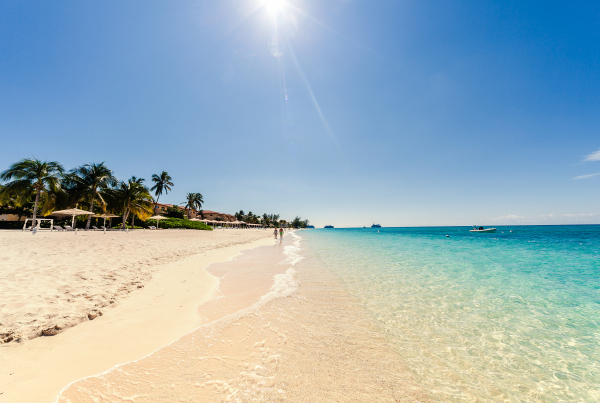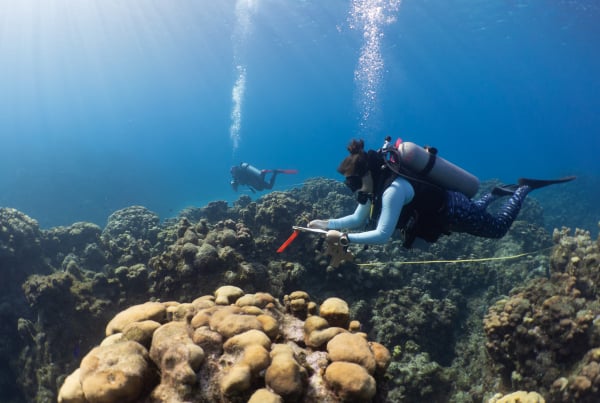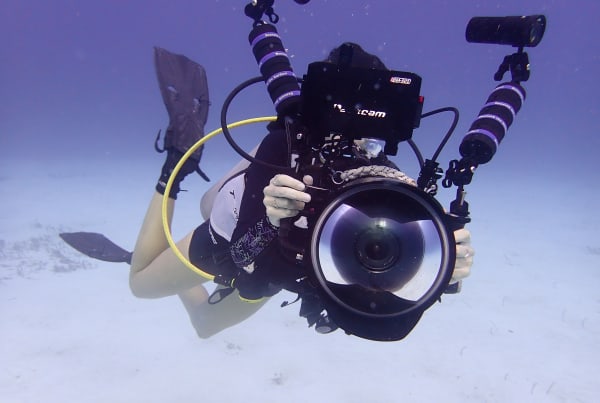LEARN AND PARTICIPATE IN ACTIVE CORAL REEF RESEARCH
Join our field guides and coral conservation research team on one the most pristine coral reef habitats in the Caribbean for the ultimate diving adventure and research experience.
This program is ideal for ocean lovers, diving enthusiasts, and aspiring conservationists or marine biologists.
DESTINATION
Little Cayman Island is the smallest of the three sister islands that make up the Cayman Islands. At just over 11 square miles with less than 200 inhabitants, Little Cayman is certainly “Little”. Over 50% of the nearshore environment is completely protected and long-term data show that the reefs on Little Cayman are among the healthiest in the Caribbean. Famous for its fabulous wall diving, Little Cayman is one of the few Caribbean locations were sharks, rays, and large schools of grouper are seen on almost every dive. The small size and limited population in Little Cayman, also give it a rustic and rural flavor, with just a small convenience store and a handful of bars and restaurants, there is truly nowhere else like it.
The Central Caribbean Marine Institute (CCMI) established its research station on Little Cayman in 2005 and began a coral nursery to conserve and restore the endangered staghorn coral species in 2011. CCMI hosts a variety of research and education groups, including international researchers and university courses. The resident research team is actively studying cutting edge coral reef research topics, including adaptation and acclimatization, reef restoration, and solutions to disease and climate change impacts, with funding from the US, EU and UK governments, and several publications annually in top peer reviewed scientific journals. This female-led organization also strives to be inclusive with funded internship and graduate student positions aimed at minority and underrepresented groups. CCMI is also working diligently to be as green as possible, incorporating solar energy into daily operations of the facility, and waste-free compostable lavatories.
ACCOMMODATION
Your home during your time with us will be at the Central Caribbean Marine Institute, an active marine research and education institution. You will experience a dorm-style lodge with everything you need for a comfortable stay, including unlimited ocean views, beach front access, WiFi, hot showers, and an outdoor area for star gazing and socializing.
MEALS
2 cooked meals a day and a help-yourself breakfast.
COMMUNICATION
Free WiFi, cellular service available with purchase of local SIM card.
CLIMATE
The Central Caribbean Marine Institute (CCMI) is situated on Little Cayman Island, ~70 miles east of Grand Cayman. We are blessed with warm tropical weather year-round.
Summer season (June to October). Summers can be wet and hot. The hottest months are usually August and September.
Winter Season (November to May). Winters are windy and sunny with less rain. The coolest months are December and January, however, these months are still quite warm.
PROJECT IMPACT AREAS
ADVANCED AND RESEARCH DIVING CERTIFICATIONS
Increase your diving skills by completing the SDI Advanced Adventure Diving and Research Diver courses along with the DAN’s Diving First Aid for Professionals. Learn techniques required to conduct research underwater, though active participation in current research projects where you will monitor the health of reef populations and assist with restoration efforts. Completion of these courses will position you for future employment in marine research and conservation, while assisting the important work conducted by CCMI. These dives will also give you a chance to experience the wonders of tropical coral reefs and dive on the most beautiful and pristine reefs in Caribbean. Additional certification options are available including: Nitrox Diver, Deep Diver, Underwater Navigation, Advanced Buoyancy Control, and Search and Recovery.
TROPICAL ECOLOGY
Physical conservation work is a vital part of wildlife conservation (and a lot more fun than you would think it would be), so you will have plenty of opportunities to get your hands dirty. Whether you assist in collecting rubbish from the beach or identifying lionfish gut content, the work you do is key to the survival of coral reefs and success of conservation in the area. It transforms the land and sea back into a healthy habitat where wildlife can flourish.
RESEARCH AND ANALYSIS
You will work alongside our conservation team to compile data into reports, maps, and presentations. Some of the techniques you will learn about include coral and fish identification, monitoring of threatened conch populations, restoration techniques, and terrestrial conservation. Your observations are essential for providing critical information that will influence conservation strategies that protect endangered and vulnerable wildlife.
These research sessions will teach you about data collection and compilation techniques that are used to influence conservation strategies. Conservationists and field guides can use this data to monitor the health of Little Cayman Island for years to come.
CONSERVATION AND EDUCATION
Sustainable conservation is only possible with the education and inclusion of all people that visit an ecosystem. Working with the local dive resorts, you will help us teach conservation education by attendance and participation in weekly public seminars in order to raise awareness around local and global conservation issues.You will also get involved in physical conservation activities organized by the local community that help us restore habitats and eco-systems, including cleaning local beaches or removing invasive species (Iguanas and Lionfish).
OTHER ACTIVITIES
BLOODY BAY WALL MARINE PARK
With the world-famous Bloody Bay Wall Marine Park right on our doorstep, going on weekend dives will be at the top of your list of things to do during your stay in Little Cayman. The sheer vertical walls host amazing biodiversity and is by far among the best diving in the Caribbean. Corals, sponges, tunnels, and vertical walls make up the landscape of Boody Bay Wall. Reef sharks, sea turtles, sting rays, and groupers – are the most well-known residents. But hundreds of other animals call the Bloody Bay Wall Marine Park home, so keep your camera ready!
EXPLORE THE SISTER ISLANDS
Rock climbing in Cayman Brac is a must do during your time in the Cayman Islands. A weekend trip gives you a chance to explore the sights on the Brac, both above and below the water. It is the second largest of the three islands. The highlight of this weekend retreat is climbing up the ocean front cliffs to the highest point on the Cayman Islands with the best viewpoints. Grand Cayman offers a brief reminder of modern life. The largest and most heavily populated of the three Islands, Grand Cayman has something for everyone. Spend a day at the Botanical Gardens or the Parrot Sanctuary, visit the Cayman Islands Turtle Center, or take a stroll down the famous 7-mile beach. If you’re in the mood for nightlife, explore the many bars and clubs along 7-mile and Camana Bay. For the ultimate indulgence, treat yourself to a spa treatment, a yoga class, or a gourmet meal at one of the many options available.
TAKE IT EASY
After the day’s excitement, you can relax on the beach, have a drink at a local bar, watch a movie, or enjoy a games night with the other interns and volunteers. Bikes and kayaks are always available for an afternoon ride or sunset paddle. Dinners on the deck are a highlight, as are the marshmallow roasting get togethers around the fire!
DATES & RATES
START DATES
5 September-14 October 2024
31 October- 9th December 2024
RATES
6 weeks: US$5,830
PROJECT FEE INCLUSIONS
- Airport pick-up and drop-off
- Accommodation throughout your stay
- 2 cooked meals a day and help-yourself breakfast
- 24/7 support from experienced international and local staff
- Project Equipment and resources
- Full orientation on arrival
- Diving course costs (Advanced, Research Diver, DAN DFA Pro)
- Air cylinders
PROJECT FEE EXCLUSIONS
- Insurances (Travel and Medical)
- Flights
- Snacks, gifts, soft drinks, souvenirs
- Additional diving activities
- Visa Related Costs
- Nitrox cylinders
- Scuba diving equipment (availability for rental)
- US$ 25 Mandatory Contribution donated to the Sustainability Fund
QUICK FACTS
| CAYMAN ISALNDS | |
| LITTLE CAYMAN | |
| 6 weeks | |
| Reef Conservation | |
| US$5,830 |
PROJECTS HIGHLIGHTS
- Spend your time diving on pristine coral reefs, researching coral conservation and restoration techniques.
- Earn your SDI Advanced Diver, Research Diver, and Emergency First Aid certifications along with several additional certification options.
- Collect information that will influence coral reef conservation by monitoring the impact of marine protected areas.
- Track the success of coral restoration by mapping wild and introduced populations of endangered coral species.
- Assist with coral restoration efforts through maintenance of the coral nursery.
- Live at an active research institution on a remote island surrounded by nature and open skies.
- On your free weekends, explore the spectacular mangroves and ponds on Little Cayman, go rock climbing on Cayman Brac, or experience the fantastic beaches and nightlife of Grand Cayman.
GALLERY
RELATED PROGRAMS
Underwater Photography & Conservation Internship in the Cayman Islands
5th September-30th September 2024
Little Cayman Islands
5-10
Join our field guides and conservation team on one the most pristine coral reef habitats in the Caribbean for the ultimate underwater photography and conservation experience.
